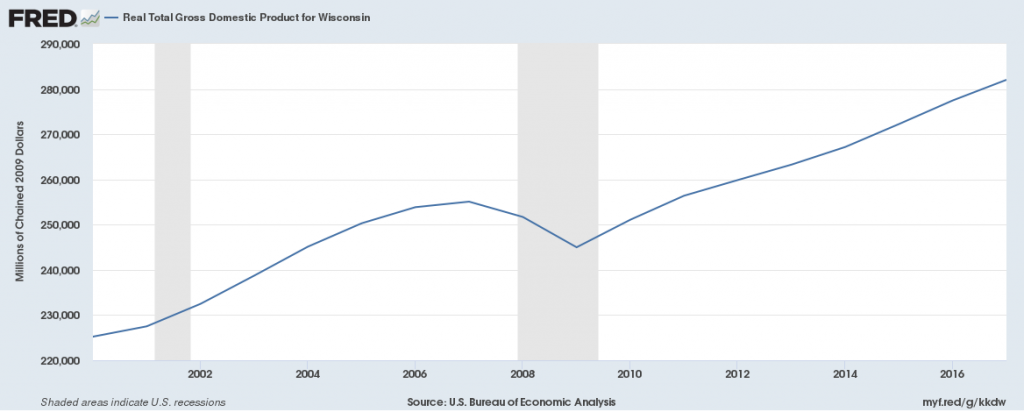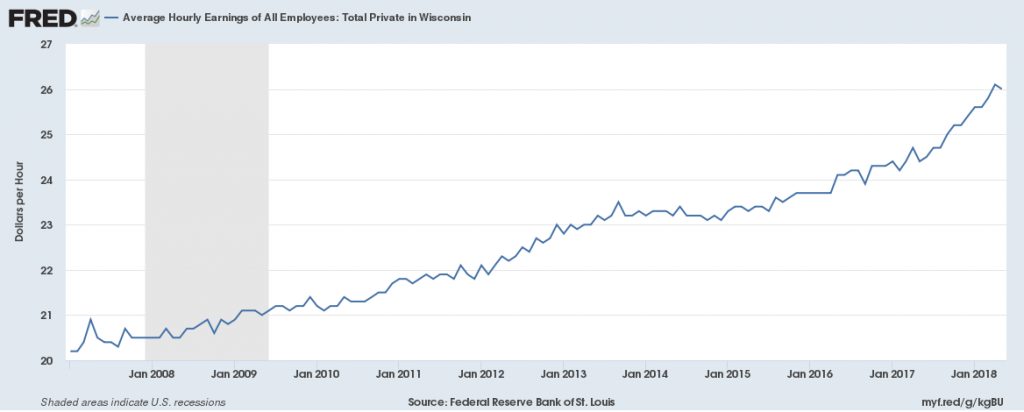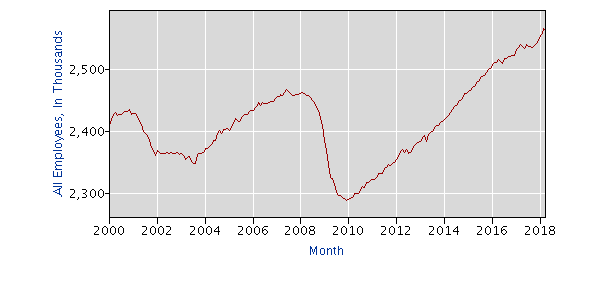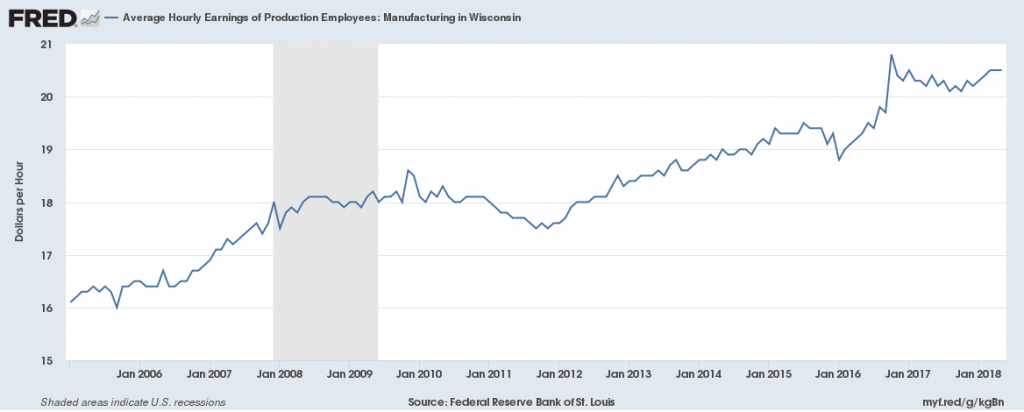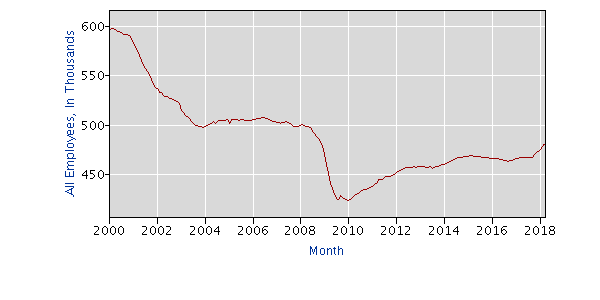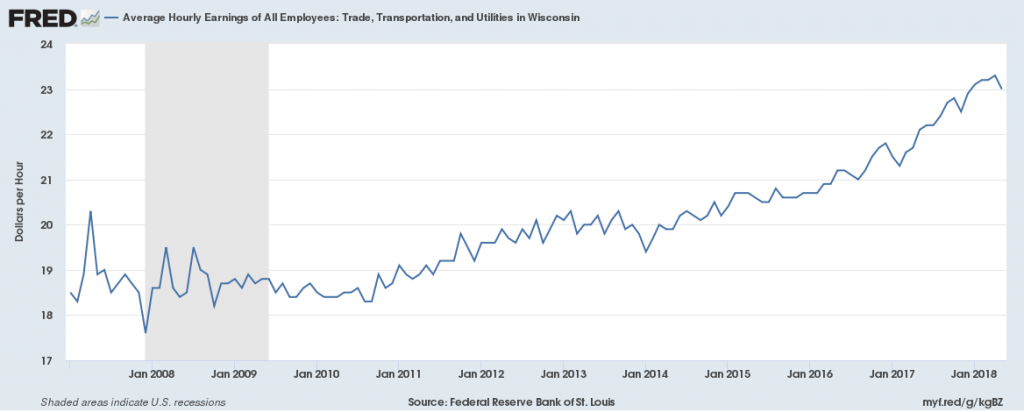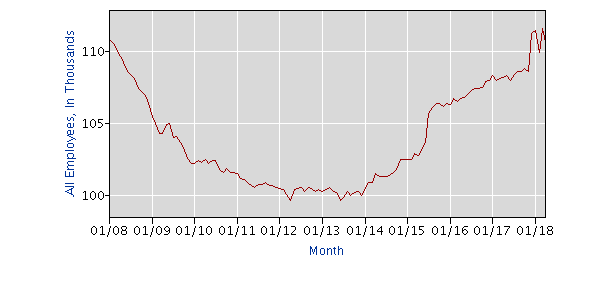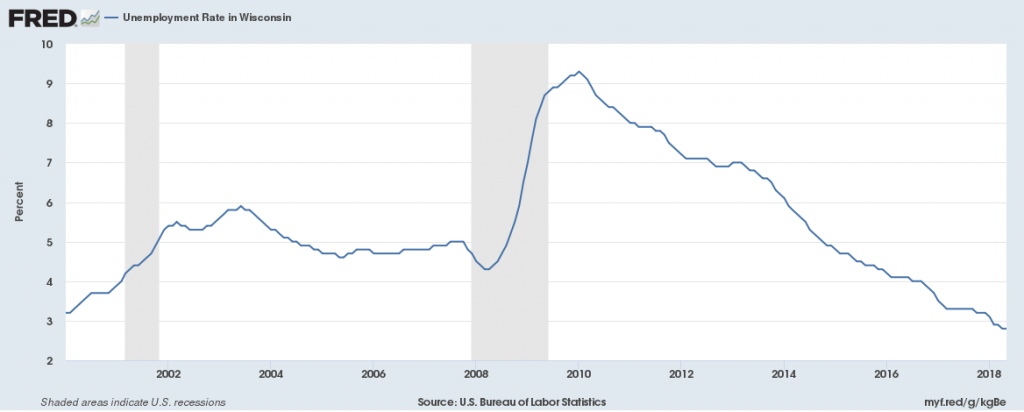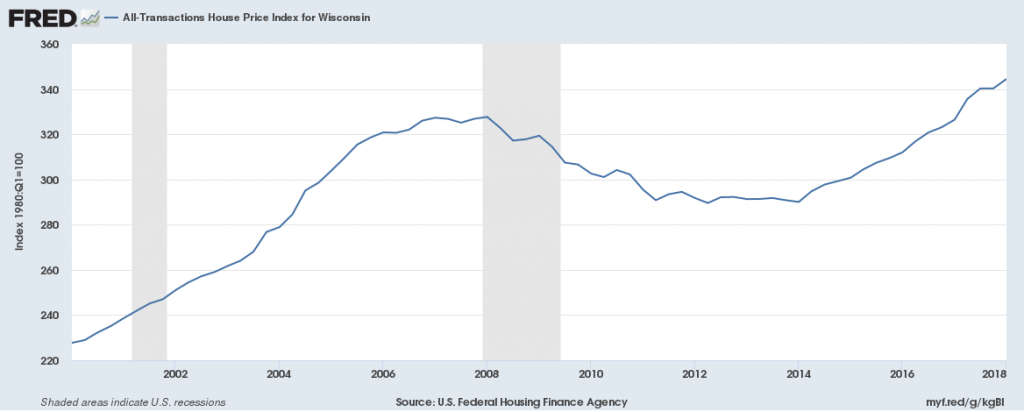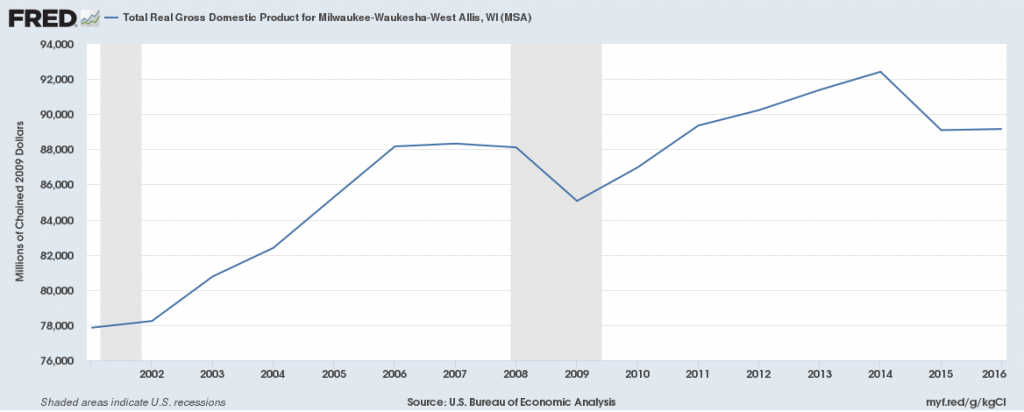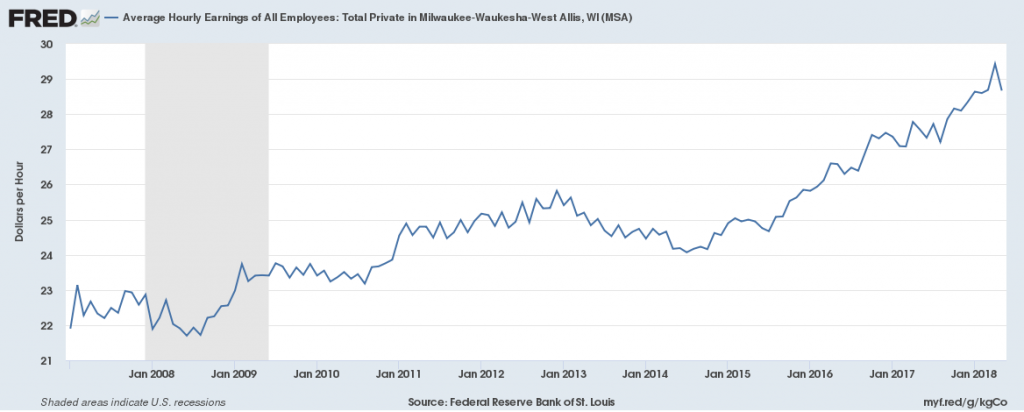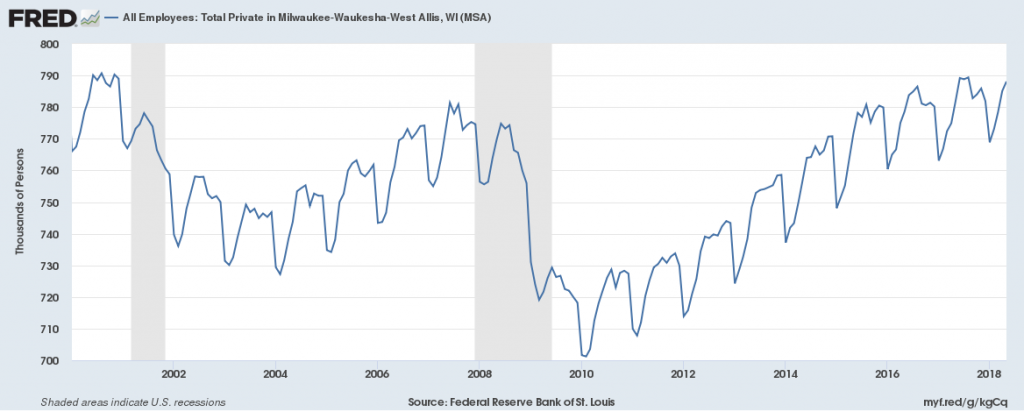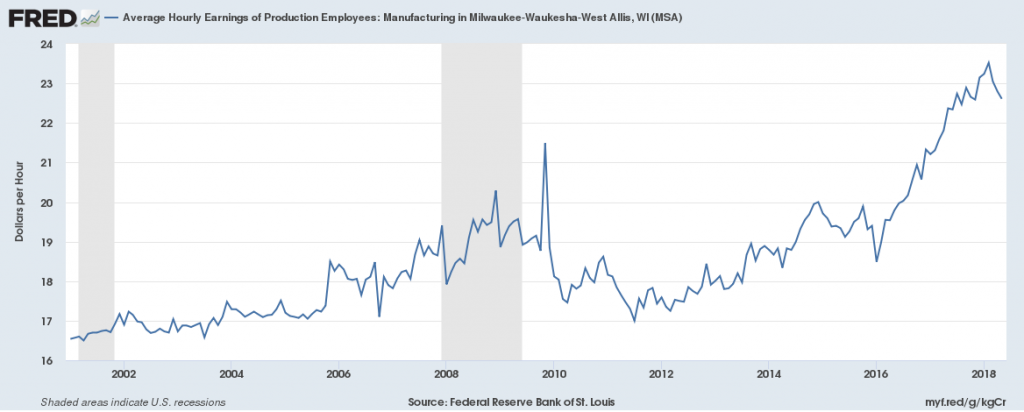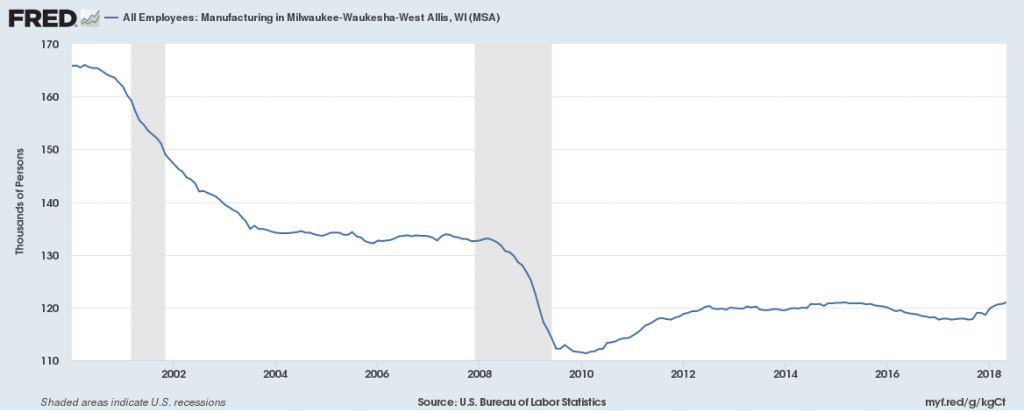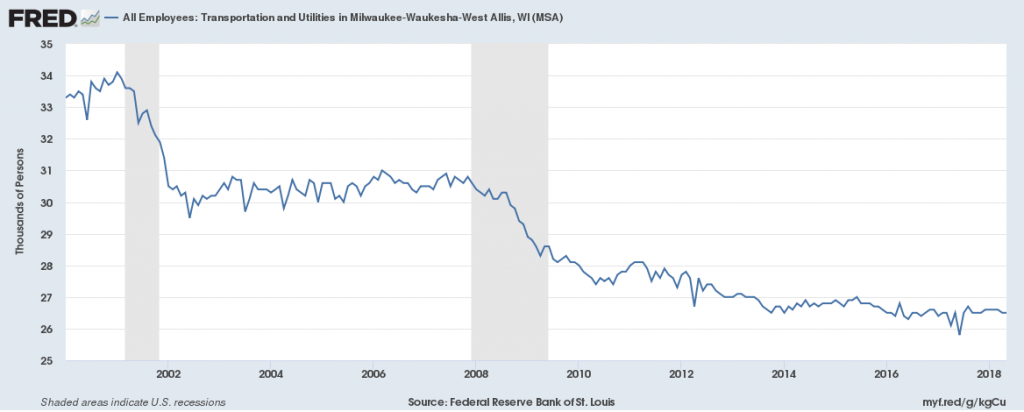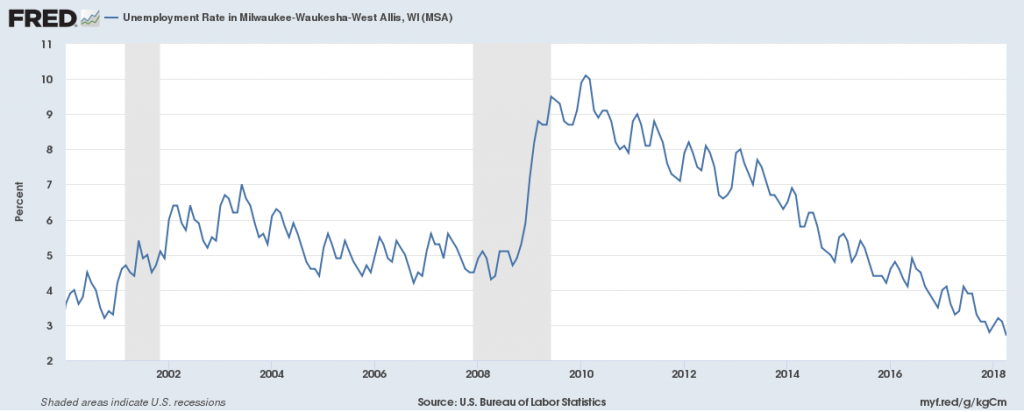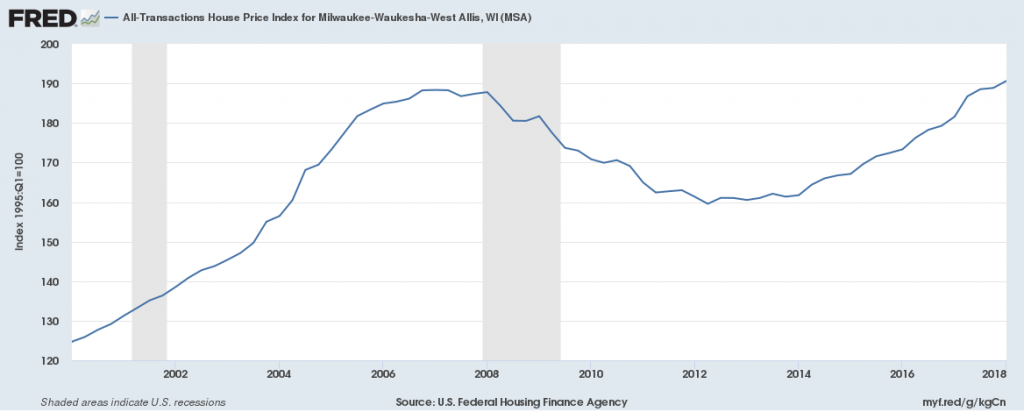Gross Domestic Product
Real GDP (a measure of economic growth) increased since 2009, going from $245 billion to $280 billion in 2017.
Jobs
Private-sector employers have added 275,000 jobs since 2010, the national low point for private-sector employment. From 2017 to 2018 the private sector added 50,000 new jobs. There were 2,750,000 total jobs in the private sector in 2018, above pre-recession levels by approximately 100,000. Average hourly wages in the private sector have grown since 2007, going from $20/hr to $26/hr in 2018.
Manufacturing employment has decreased since 2000, especially during the recession. There were 475,000 jobs in this sector in 2018, down from 600,000 in 2000 and below pre-recession levels of 500,000. Average hourly wages of manufacturing employees have grown since 2001, going from $16/hr to $22/hr by 2018.
There were 113,000 jobs in the Transportation, Warehousing and Utilities sector in 2018, below pre-recession levels by 5,000 jobs, showing a decline in this sector. The average wage in the Trade, Transportation and Utilities sector was $19/hr in 2008 and $23/hr in 2018.
Unemployment
The unemployment rate in 2018 is 2.8%, down from the prior year’s 3.3% rate. This is below the national average of 3.9% unemployment.
Housing
The House Price Index, a measure of the cost of housing, has been increasing since 2014, going from 280 to 343, showing an increase in housing costs.
Milwaukee-Waukesha-West Allis
Gross Domestic Product
Real GDP (a measure of economic growth) increased from 2009-2014, going from $85 billion in 2009 to $92 billion. It has declined since then, going to $89 billion by 2016.
Jobs
Private-sector employers have added 70,000 jobs since 2010, the national low point for private-sector employment. From 2017 to 2018 the private sector added 5,000 new jobs. There were 785,000 total jobs in the private sector in 2018, slightly above pre-recession levels. Average hourly wages in the private sector have grown since 2010, going from $23.50/hr to $29/hr in 2018.
Manufacturing employment has decreased since 2000, especially during the recession and has slightly recovered from 2010-2012. There were 121,000 jobs in this sector in 2018, down from 165,000 in 2000 and below pre-recession levels of 135,000. Average hourly wages of manufacturing employees have grown since 2012, going from $17.50/hr to $23/hr by 2018.
There were 26,500 jobs in the Transportation, Warehousing and Utilities sector in 2018, below pre-recession levels by 3,000 jobs, showing a decline in this sector. The average wage in Transportation and Material Moving occupations was $17.20/hr in 2018.
Unemployment
The unemployment rate in 2018 is 2.8%, down from the prior year’s 4% rate. This is below the national average of 3.9% unemployment.
Housing
The House Price Index, a measure of the cost of housing, has been increasing since 2013, going from 160 to 190, showing an increase in housing costs.






